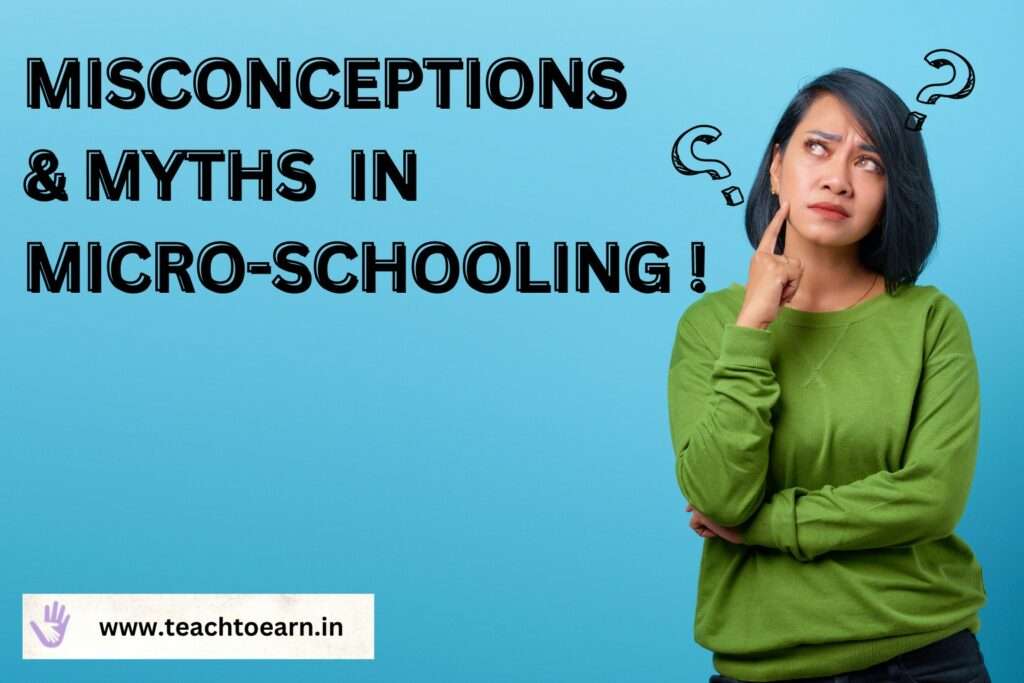
Do you want to start your microschooling journey? but has emerged as a disruptive force, offering a personalised and flexible approach to learning. However, like any innovative concept, microschooling is not immune to misconceptions and myths. Let’s delve into some of these myths and uncover the reality behind it.
Myth 1: Microschools Are Just Small Classrooms
One common misconception about microschools is that they are merely scaled-down versions of traditional classrooms. In reality, microschools offer a radical departure from conventional education models by focusing on individualized instruction, project-based learning, and tailored curricula. These schools often leverage technology, community resources, and interdisciplinary approaches to provide a rich and dynamic learning experience.
Myth 2: Microschools Are Exclusively for the Wealthy
While some microschools may have higher tuition fees, the concept itself is not inherently elitist. In fact, microschools have the potential to be more accessible than traditional private schools. With the rise of co-op microschools, where parents take turns teaching or hire independent educators collectively, families from diverse socio-economic backgrounds can participate in this educational model. Additionally, scholarship programs and sliding-scale tuition options can further democratise access to microschooling.
Myth 3: Microschools Lack Accreditation and Oversight
People often worry about the legality and quality of education in microschools because they have the wrong ideas about how they are regulated and accredited. It’s true that microschools don’t always follow the usual ways to get accredited, but a lot of them do follow strict rules and get checked out by educational authorities or outside accrediting groups. Also, microschools often put student outcomes first, and because they tailor their lessons to each student, they may even do better than standard schools in some ways.
Myth 4: Microschools Isolate Students from Social Interaction
Critics argue that microschools isolate students from diverse social interactions by limiting their exposure to peers from different backgrounds. However, microschools often foster strong, tight-knit communities where students collaborate, mentor one another, and engage in real-world experiences. Additionally, microschools can facilitate socialisation through partnerships with community organisations, field trips, and extracurricular activities, ensuring that students develop essential social skills in diverse settings.
Myth 5: Microschools Cannot Prepare Students for College and Career
Another misconception is that microschools fail to adequately prepare students for higher education or the workforce. On the contrary, microschools emphasise critical thinking, problem-solving, and self-directed learning—skills that are highly valued in today’s rapidly changing world. Moreover, many microschools offer tailored college preparatory programs, career exploration opportunities, and partnerships with colleges and businesses to ensure that students are well-equipped for their future endeavours.
Microschooling represents a paradigm shift in education, offering a compelling alternative to traditional schooling models. By dispelling these myths and misconceptions, we can better appreciate the innovative potential of microschools to nurture independent thinkers, foster meaningful connections, and empower students to thrive in an increasingly complex and interconnected world. As we continue to explore and refine this educational approach, let’s embrace its promise while remaining vigilant about addressing legitimate concerns and ensuring equity and inclusivity for all learners.You may be asking yourself, “How can I start this microschooling journey?” at this point. In the world of microschooling education, Teach to Earn is a bright spot. It’s your pass to an early advantage in the field of microschooling, complete with instructional PCs and an extensive course catalogue. Teach to Earn offers something for everyone, whether you’re a teacher hoping to pique students’ curiosity or a student looking to explore new areas of knowledge.
Are you prepared to use microschooling to spark change and improve the flawed educational system? Come along on this life-changing journey with us if you are passionate about teaching children and making a good difference. Gather your belongings, fasten your creativity, and let’s go out on an exploration journey together. With your enthusiasm and commitment, the world becomes your school, and the opportunities are genuinely limitless. Together, let’s make the most of every second of this amazing computer-based microschooling journey.
